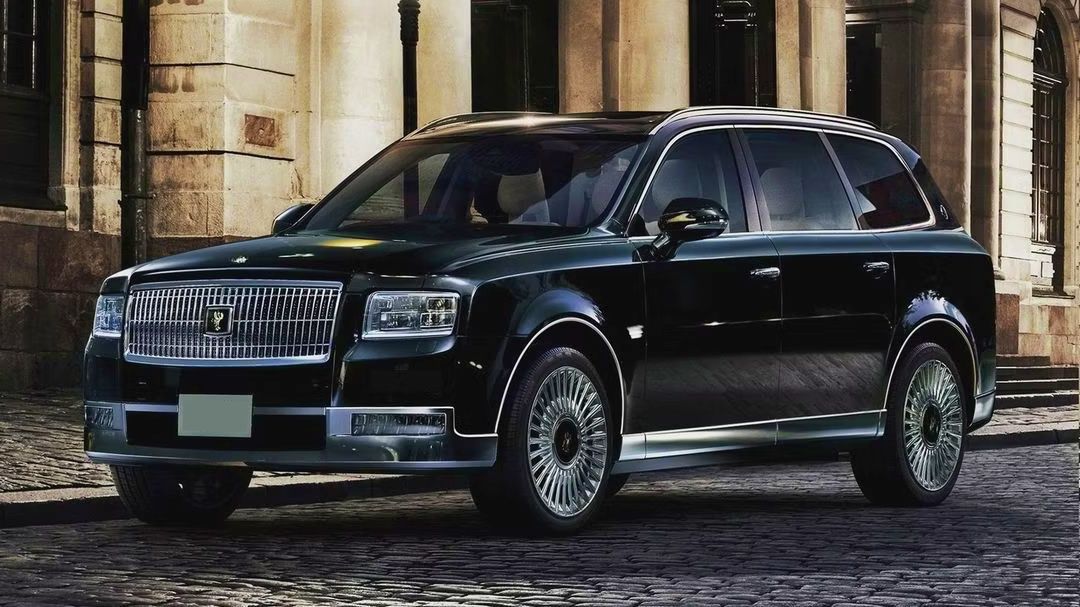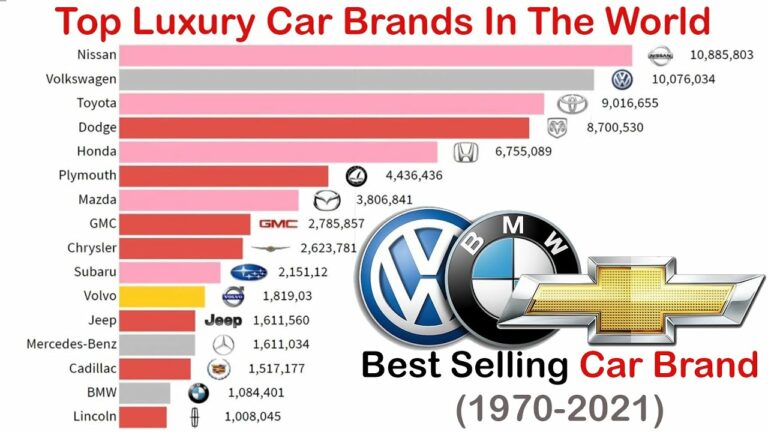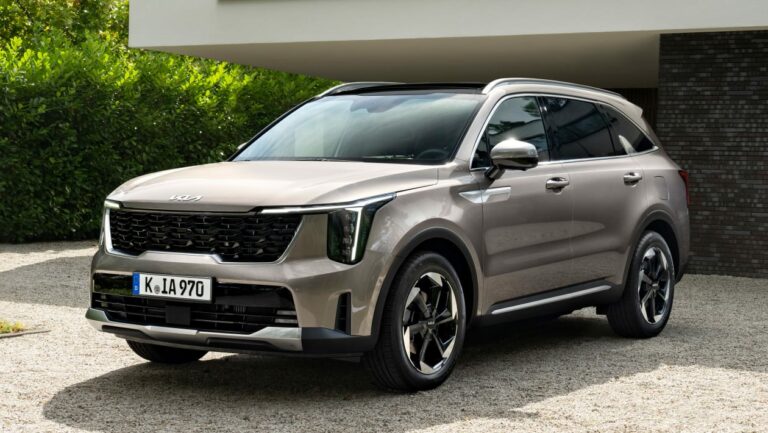Lexus: Toyota’s Luxury Car Brand – A Legacy of Refinement and Reliability
Lexus: Toyota’s Luxury Car Brand – A Legacy of Refinement and Reliability cars.truckstrend.com
An Engaging Introduction: The Quiet Revolution
In the late 1980s, the automotive world witnessed a seismic shift. Toyota, a brand synonymous with dependable, affordable, and practical vehicles, embarked on an audacious mission: to create a luxury car brand that would not only compete with, but potentially surpass, the established European giants like Mercedes-Benz and BMW. This ambitious undertaking culminated in the birth of Lexus in 1989, a brand that quickly redefined the very essence of luxury.
Lexus: Toyota’s Luxury Car Brand – A Legacy of Refinement and Reliability
Lexus emerged not with a bang, but with a whisper – the unparalleled quietness and refinement of its flagship LS 400 sedan. It challenged the prevailing notion that luxury cars had to be expensive, temperamental, or overly ostentatious. Instead, Lexus offered a compelling blend of exquisite craftsmanship, relentless reliability, innovative technology, and a customer service philosophy that was revolutionary. Today, Lexus stands as a testament to Toyota’s engineering prowess and unwavering commitment to perfection, carving out a significant niche in the global luxury market and proving that true luxury can indeed be synonymous with dependability and unparalleled customer care. This article delves deep into the multifaceted world of Lexus, exploring its origins, core philosophies, diverse model lineup, and the unique ownership experience it offers.
The Genesis of Lexus – A Bold New Chapter for Toyota
The story of Lexus began in 1983 when Toyota chairman Eiji Toyoda issued a challenge: "Create the best car in the world." This directive initiated "Project F1" (Flagship One), a top-secret endeavor involving thousands of engineers, designers, and technicians. The goal was not merely to build a better Toyota, but to conceive an entirely new luxury identity, one that would resonate with discerning customers in the crucial North American market.
Toyota meticulously studied the habits and preferences of affluent consumers, dissecting everything from their driving styles to their expectations of luxury and service. The insights gained were profound: while performance and prestige were important, reliability, comfort, and an exceptional ownership experience were paramount. This research led to a departure from the traditional luxury paradigm, which often prioritized raw power and aggressive styling over refinement and long-term satisfaction.
On September 1, 1989, Lexus officially launched in the United States with two models: the ES 250 and, more significantly, the LS 400. The LS 400 was an engineering marvel. It boasted a silky-smooth V8 engine, an incredibly quiet cabin, meticulous build quality, and a price tag that significantly undercut its German rivals while offering comparable, if not superior, features. Automotive critics were stunned, and consumers quickly embraced this new definition of luxury. The LS 400’s success was immediate and profound, solidifying Lexus’s place as a legitimate contender and forever changing the landscape of the luxury automotive industry.
Core Pillars of Lexus Luxury – Beyond Opulence
Lexus’s success is built upon a unique set of foundational principles that go beyond mere aesthetics and engine specifications. These pillars define the brand’s identity and differentiate it in a highly competitive market:
1. Takumi Craftsmanship: The Art of Perfection

At the heart of every Lexus lies the dedication of its "Takumi" master craftsmen. These highly skilled artisans, numbering only a few dozen across Toyota’s global operations, possess decades of experience and an almost obsessive attention to detail. From perfectly stitched leather upholstery to precisely aligned body panels and the finely tuned sound of a closing door, Takumi ensure every element of a Lexus vehicle meets the brand’s exacting standards. Their expertise is evident in the seamless integration of materials, the ergonomic layout of controls, and the overall sensory experience of being inside a Lexus.
2. Omotenashi Hospitality: Anticipating Every Need
Omotenashi is a distinctly Japanese concept of selfless hospitality, where one anticipates the needs of a guest before they even express them. Lexus has meticulously integrated this philosophy into its customer service model. From the moment a customer steps into a Lexus dealership, they are treated with unparalleled respect and attention. This extends to personalized service, transparent communication, and a commitment to ensuring every interaction is seamless and pleasant. Omotenashi fosters a deep sense of loyalty, transforming vehicle ownership into a premium experience that extends far beyond the drive itself.
3. Relentless Pursuit of Perfection (Kaizen): Continuous Improvement
Drawing from Toyota’s renowned "Kaizen" principle, Lexus is in a constant state of evolution and refinement. This philosophy dictates that there is always room for improvement, no matter how small. Every detail, from the weight of a steering wheel to the response of a braking system, is continually analyzed, tested, and optimized. This commitment to continuous improvement ensures that Lexus vehicles remain at the forefront of innovation, quality, and driver satisfaction.

4. Engineering Excellence & Reliability: The Toyota DNA
While Lexus is a luxury brand, it inherits Toyota’s legendary reputation for engineering excellence and bulletproof reliability. Lexus vehicles consistently rank high in quality and dependability surveys, offering peace of mind to owners. This foundational reliability means less time spent in service bays and more time enjoying the drive, a significant differentiator in the luxury segment where complex technologies can sometimes lead to unforeseen issues.
5. Hybrid Technology Leadership: Pioneering Efficiency in Luxury
Lexus was a pioneer in bringing hybrid technology to the luxury segment, introducing the RX 400h in 2005. This move showcased the brand’s forward-thinking approach to sustainability without compromising on performance or luxury. Today, a significant portion of the Lexus lineup offers hybrid variants, providing a compelling combination of power, efficiency, and environmental consciousness.
The Lexus Model Lineup – A Diverse Portfolio of Elegance

Lexus offers a comprehensive range of vehicles designed to meet diverse luxury needs, from nimble urban commuters to spacious family SUVs and exhilarating performance coupes.
- Sedans:
- IS (Intelligent Sport): A compact executive sedan focused on engaging driving dynamics.
- ES (Executive Sedan): A comfortable, refined, and spacious front-wheel-drive sedan, often a best-seller for its value and smooth ride.
- LS (Luxury Sedan): The flagship, full-size luxury sedan, known for its opulent interior, advanced technology, and serene driving experience.
- SUVs/Crossovers:
- UX (Urban Crossover): The smallest crossover, ideal for city driving with a focus on agility and efficiency.
- NX (Nimble Crossover): A popular compact luxury SUV, balancing style, technology, and practicality.
- RX (Radiant Crossover): The segment-defining mid-size luxury SUV, known for its comfort, reliability, and family-friendly appeal. Often available in L (long-wheelbase) variants with three rows.
- GX (Grand Crossover): A rugged, body-on-frame mid-size SUV with serious off-road capability, blending luxury with durability.
- LX (Luxury Crossover): The full-size, flagship SUV, sharing its robust platform with the Toyota Land Cruiser, offering unparalleled luxury, space, and off-road prowess.
- Coupes & Performance Vehicles:
- RC (Radical Coupe): A stylish and sporty coupe offering a blend of performance and luxury.
- LC (Luxury Coupe): A breathtaking grand touring coupe, celebrated for its stunning design, powerful engines, and luxurious interior, serving as a halo car for the brand.
- F Performance Models (e.g., IS 500 F Sport Performance, RC F): High-performance variants of existing models, featuring more powerful engines, track-tuned suspensions, and aggressive styling.
The Lexus Ownership Experience – More Than Just a Car
Owning a Lexus is an experience crafted to be as refined as the vehicles themselves. It begins with the initial purchase and extends throughout the vehicle’s lifespan.
- Dealership Experience: Lexus dealerships are designed to embody the Omotenashi philosophy. Customers can expect a serene environment, knowledgeable sales associates who prioritize their needs over high-pressure tactics, and efficient service departments. Loaner vehicles are often provided during service appointments, and amenities like comfortable lounges and complimentary refreshments are standard.
- Reliability and Maintenance: Lexus vehicles are renowned for their durability, leading to lower long-term maintenance costs compared to many European luxury brands. Scheduled maintenance is straightforward, and the availability of parts is excellent.
- Warranty and Support: Lexus offers comprehensive warranties and roadside assistance programs, further enhancing peace of mind. Their commitment to customer satisfaction means issues are typically addressed promptly and efficiently.
- Resale Value: Due to their reputation for reliability and quality, Lexus vehicles tend to hold their value exceptionally well, making them a wise investment for many luxury car buyers.
- Technology and Connected Services: Modern Lexus vehicles are equipped with advanced infotainment systems, safety features (Lexus Safety System+), and connected services that enhance convenience, navigation, and security.
Navigating the Lexus Market – Tips for Prospective Buyers
Choosing the right Lexus involves understanding your needs and the options available. Here’s some practical advice:
- Define Your Needs:
- Purpose: Commuting, family transport, off-roading, performance driving?
- Space: How many passengers? How much cargo?
- Fuel Efficiency: Is a hybrid model a priority?
- Budget: Not just purchase price, but insurance, maintenance, and fuel.
- New vs. Used:
- New: Access to the latest technology, full warranty, customization options. Higher initial depreciation.
- Used (Certified Pre-Owned – CPO): Significant savings, CPO warranty, rigorous inspection. Lexus CPO vehicles offer excellent value and peace of mind.
- Leasing vs. Buying:
- Leasing: Lower monthly payments, drive a new car every few years, no resale hassle. Mileage restrictions apply.
- Buying: Full ownership, no mileage limits, build equity. Higher initial payments.
- Key Features to Consider:
- Safety (Lexus Safety System+): Standard on most models, includes pre-collision systems, lane keeping assist, adaptive cruise control.
- Infotainment: Evaluate the user interface (touchscreen vs. touchpad), connectivity options (Apple CarPlay, Android Auto), and sound system quality (Mark Levinson).
- Comfort: Test seat comfort, adjustability, cabin quietness, and climate control effectiveness.
- Performance: Consider engine options (V6, V8, hybrid), handling characteristics, and F Sport trims if performance is a priority.
- The Test Drive: This is crucial. Drive on various road types (city, highway, rough patches) to assess ride comfort, handling, acceleration, braking, and cabin noise. Pay attention to blind spots and overall visibility.
- Maintenance & Running Costs: While reliable, luxury vehicles do have higher maintenance costs than economy cars. Factor in premium fuel, specialized parts, and dealership service rates. However, Lexus generally offers lower running costs than many direct European competitors.
Challenges and Future Outlook for Lexus
Despite its formidable reputation, Lexus faces ongoing challenges in the dynamic luxury market:
- Intense Competition: European rivals continue to innovate, and new players like Genesis (Hyundai’s luxury brand) are emerging.
- Evolving Design Language: Lexus’s "spindle grille" design has been polarizing, though more recent iterations are becoming more widely accepted.
- Electrification Transition: While a leader in hybrids, Lexus is playing catch-up in the pure Battery Electric Vehicle (BEV) space. The market is rapidly shifting towards EVs, and Lexus needs to accelerate its BEV rollout.
- Infotainment Interface: Historically, Lexus’s Remote Touch interface has received criticism for being less intuitive than competitors. Newer models are adopting touchscreens, addressing this concern.
Looking ahead, Lexus is committed to its "Lexus Electrified" vision, planning a significant expansion of its BEV lineup and aiming for a fully electric portfolio in key markets by 2030. The brand will continue to emphasize its unique blend of Omotenashi, Takumi craftsmanship, and human-centric design, ensuring that future Lexus vehicles offer not just luxury, but an emotionally engaging and sustainable ownership experience. Lexus is poised to evolve, adapting to new technologies while staying true to its core values of refinement and reliability.
Toyota Luxury Car Brand (Lexus) – Representative Starting MSRP Table (Approximate)
Please note: Prices are approximate starting Manufacturer’s Suggested Retail Prices (MSRP) for base models in the United States and can vary significantly based on trim level, options, packages, region, dealership, and current incentives. They do not include destination charges, taxes, title, or registration fees. Always consult a local Lexus dealership for the most accurate and up-to-date pricing.
| Model Series | Body Style | Starting MSRP (Approx. USD) | Key Features / Notes |
|---|






